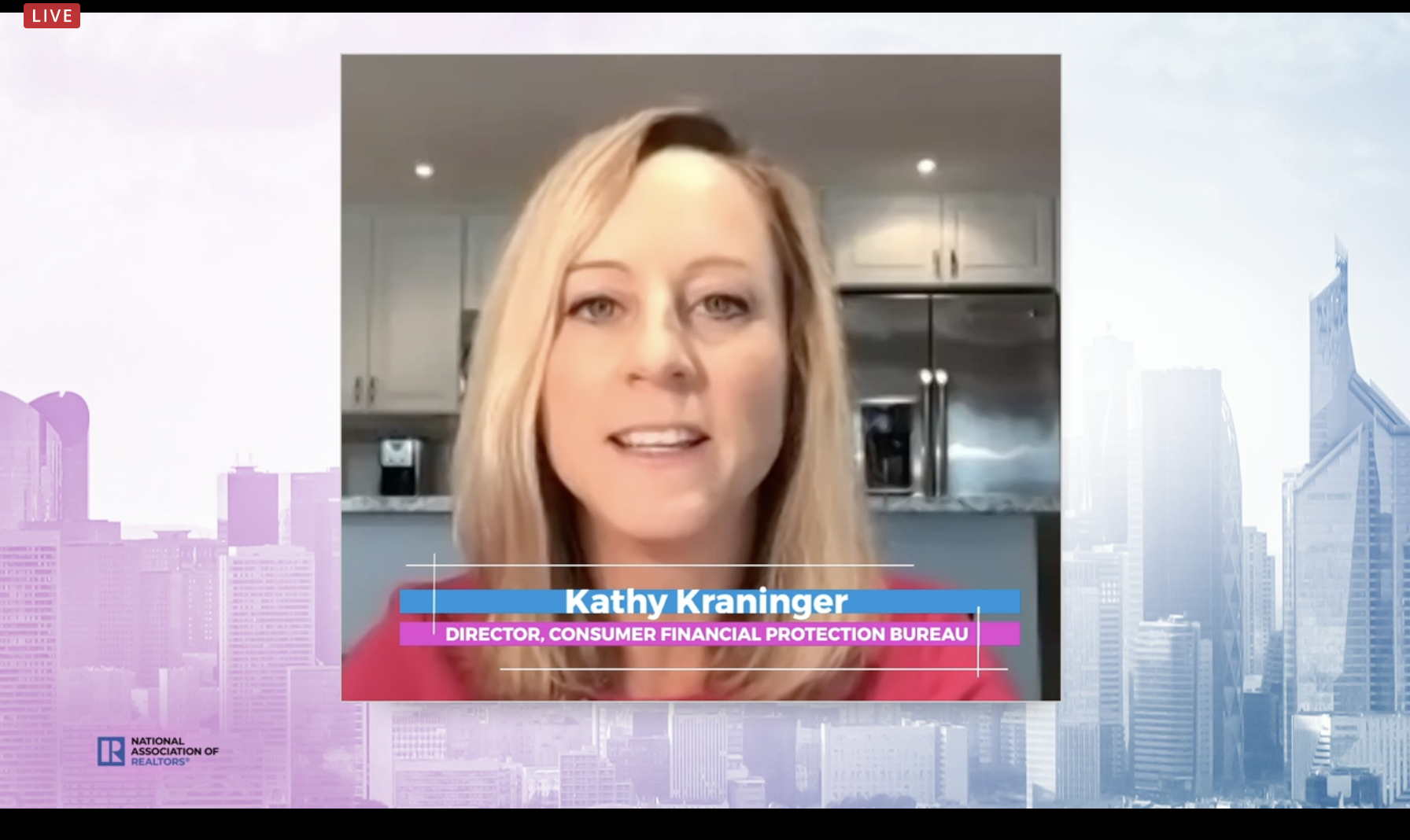The Consumer Financial Protection Bureau still aims to eliminate the so-called QM patch rule that allows some government-backed loans to exceed the debt-to-income ratio to qualify for mortgages, but the coronavirus pandemic could delay the change.
That’s according to Kathy Kraninger, director of the Consumer Financial Protection Bureau, who participated in the National Association of Realtors’ Midyear forum on regulatory issues.
The forum featured Kraninger, Department of Labor Secretary Eugene Scalia and U.S. Small Business Administration Administrator Jovita Carranza.
NAR Public and Federal Issues Committee Liaison Nate Johnson told Kraninger that NAR and the entire real estate industry is urging the CFPB to extend the QM patch rule, which is set to expire in 2021 “so that we can ensure long-term liquidity while we focus on short-term recovery during these turbulent times.”
Kraninger said that when the patch was put into place six years ago, it was always meant to expire. “But we are going to certainly take into account the current situation and the right transition time period,” she added.
The current debt-to-income ratio is 43%, but that doesn’t take into consideration a number of factors, such as younger generations spending less on transportation, Johnson said. “They’re not looking at a lot of our markets where we have mass transit,” Johnson added. Millennials and those in generation Z own fewer cars and spend less on gas.
Of course, the QM patch is just the beginning when it comes to how the coronavirus pandemic is impacting borrowers across the country. Kraninger said at the forum that the bureau has had its highest volume of complaints in its history since the pandemic took hold of the country. “Mortgages and credit cards top the list,” when it comes to COVID-19-related complaints, she said.
She assured the audience that those in forbearance due to a COVID-19-related hardship will not see their credit negatively affected. “If you are part of a forbearance program, you are still current if you are performing in that relationship as promised and as agreed. So yes, that should not detrimentally impact your credit score,” she said.
Labor Secretary Scalia largely gave an overview of the government’s response to the pandemic through the bipartisan CARES Act legislation and Paycheck Protection Program. Scalia said the pandemic and skyrocketing unemployment rate were temporary and the Labor Department aims to keep them that way.
U.S. Small Business Administration Administrator Carranza read a prepared statement in the virtual forum saying the $349 billion stimulus bill followed by the $310 billion bill for small businesses has helped buoy the American economy, adding that “the [Paycheck Protection Program] is working, even if it’s not glitch-free.”
“These loans are keeping hundreds of thousands of businesses viable,” she said.
Carranza added that Realtors’ work is indispensable to the American dream. “Families and small businesses rely on you to establish their homes and places of business,” she said. “We need your spirit of entrepreneurship, grit and kindness now more than ever.”

